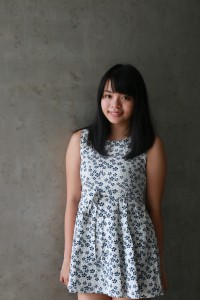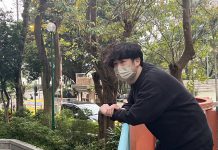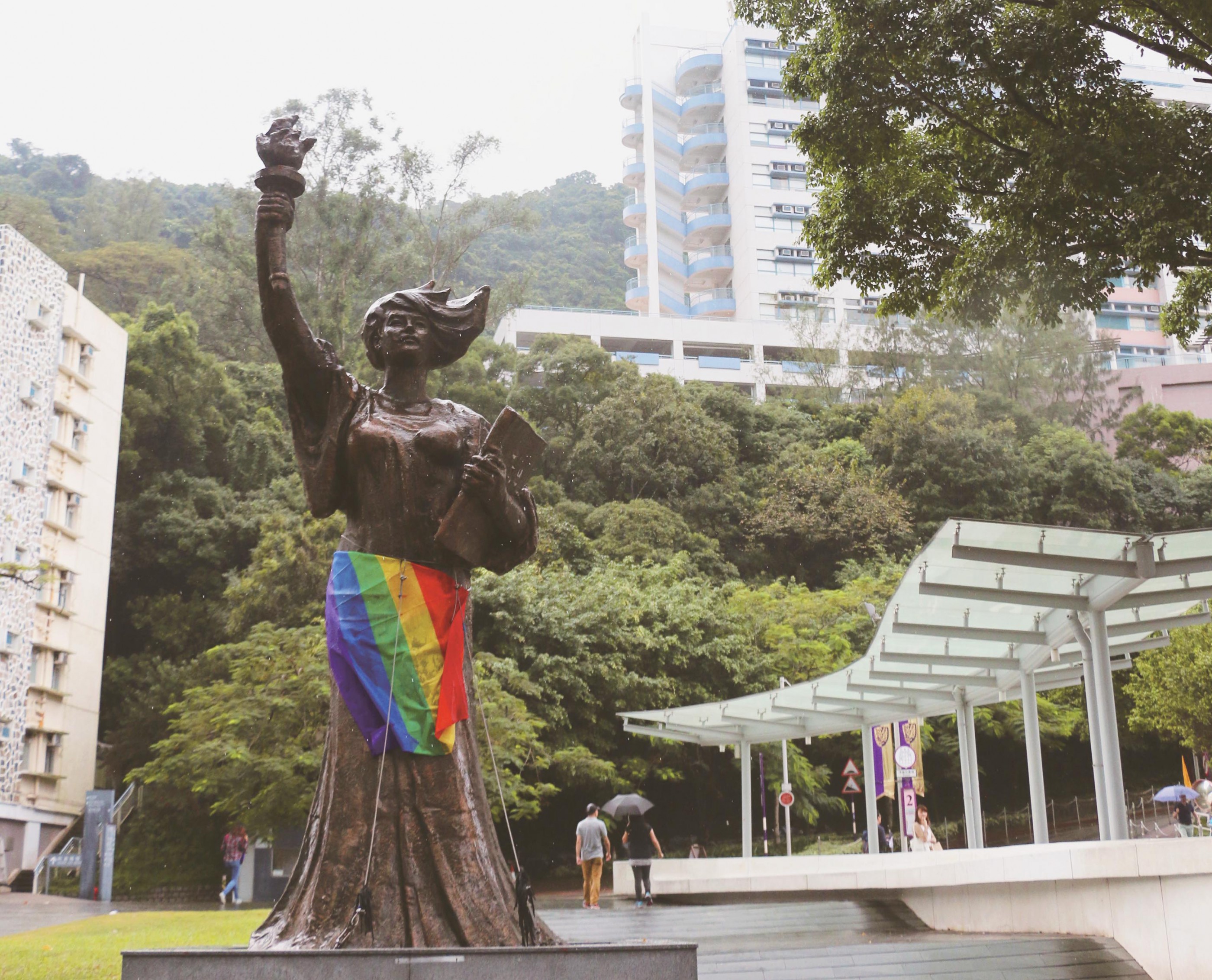Women talk about gender in protests and politics in Hong Kong
By Emily Man & Julian Ng
On the morning of Sunday April 14, 2013, university student Sun Yi-chung stood in line with other tertiary students and began a 12-hour march from the Cheung Kong Holdings headquarters in Central to Container Terminal Number Six in Kwai Chung. They were marching to support dock workers who were striking for better pay and conditions.
Sun wore a white T-shirt, a red headband and jeans. She says her outfit that day was chosen to match the others and also for comfort and convenience. This was the reason she also wore a cross-body bag that would end up attracting ridicule and harassment from strangers on the internet.
When photos of the march were circulated online, some netizens combined pictures that emphasised the then 19-year-old Sun’s breasts with sexy young models. Added captions explained how female bodies were used for promotional purposes in commercials and claimed they were used for similar purposes in social movements. The picture quickly went viral.
“I was really angry because they misunderstood me and the movement, as if I was trying to achieve something by showing off my body,” Sun says. “But I never thought of it that way.”

A friend of Sun’s deactivated her Facebook account to protect her but she reactivated it after less than a day. She decided she should fight back and defend herself. Sun thinks people often judge female protesters by their appearance, by what they wear and how they look and this is unfair. After the incident, Sun’s friends and family members advised her not to wear skirts or cross-body bags while attending protests, especially if cameras were present. But she insisted on choosing clothes for comfort and convenience. “I have the freedom to choose what to wear,” Sun says. “And if people comment on my body again, I will just ignore them.”
A year after Sun was body shamed, it was Shek Pui-yin’s turn to be vilified for her body. The 21-year-old was a vice-chairperson of the Representative Council of the Hong Kong Federation of Students (HKFS) at the time of the Occupy Movement.
She had been one of the HKFS spokespeople earlier in the movement, but stepped back after Chin Wan-kan, an assistant professor at Lingnan University, reposted a photo of her on stage with the caption “the action really escalated” on his Facebook page.
The Chinese term for escalate is pronounced “sing cup” in Cantonese, which can be interpreted to refer to the size of a woman’s breasts, or “cup” size. Chin denied any sexual innuendo in his choice of words. But many lewd and suggestive comments were posted by others beneath his post.
“When it happened, I wished that I were a boy,” Shek says. “If you think what I said was nonsense, you can criticise me directly instead of criticising my body…it is not fair that females participating in politics always need to deal with these kind of attacks.”

Shek was unsure of how to react to the comments at first, but later criticised Chin for being disrespectful. She suggested he was using sexual violence as a tactic to scare away female protesters who held different political views to his. This only brought her more criticism.
Chin’s supporters attacked Shek and accused her of being an attention-seeking radical feminist. But Shek does not regret speaking out.
“If I had not replied, those people would use the same strategy to attack other girls. I felt I needed to stand up and let them know I did not like it,” she says.
Apart from being criticised for their appearance, Shek says women are marginalised in Hong Kong politics, where men dominate and women often just take supporting roles. She says even in social movements, the culture expects leaders to be masculine and to speak boldly. Men often occupy roles like secretary-general, and women generally provide back-up and support.
“This limits my participation. I think I am also capable of speaking publicly, and I also have my own thoughts. Why can’t I be involved in decision-making? Why can’t I speak on stage? Why do I have to retreat and not stand on the frontline?”







































